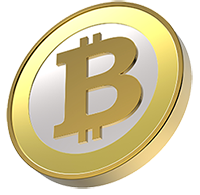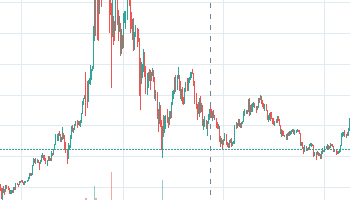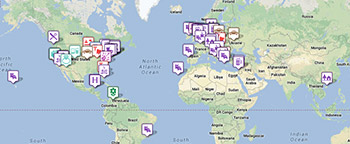In 2008, a mysterious Satoshi Nakamoto presented his idea of the first global cryptocurrency called Bitcoin. This project started attracting attention in the 2010s and skyrocketed in 2017, helping other digital currencies to rise in price, too. Today, you can easily purchase bitcoins in numerous ways, as well as buy other digital assets. But what if we go deeper?
The majority of cryptocurrencies rely on the tech called blockchain. Sadly, many regular people associate this technology with digital coins only, think that it’s manipulative and finance-focused. What’s true is that blockchain ideas can be implemented in many industries and improve our daily life significantly.
This article highlights the main concepts around blockchain tech. We also want to show how it can change our lives.
Getting to Know Blockchain
To understand how blockchain use cases integrate into our everyday life, you should know at least the basics of this tech. Put very simply, blockchain is a system of data storing and exchanging. It’s a combination of blocks – single units that store information about transactions or other actions. Blocks are subsequently connected so it’s virtually impossible to change data in the previous blocks without altering the next ones.
Also, unlike traditional storages, blockchain isn’t limited to one device. Instead, its copies are stored on many computers around the globe. Known as nodes, these computers ensure that nobody can rewrite or change data because this process becomes extremely expensive as it requires modification of all the available copies. Combined, the subsequent combination and node-based structure make blockchain a highly secure and immutable data ledger.
Of course, this approach fits the finance industry. People and institutions can store and send money without limits, borders, and regulators. Nobody controls blockchain systems but all the participants can check its data without altering it. That’s why cryptocurrencies emerged. But there are many other ways to use blockchain! Let’s check a few of them.
Blockchain Tech in Everyday Life
A few core principles let blockchain projects reshape our life. Its immutability protects data, accessibility makes it simple to use various products or services, while direct interaction removes third-parties and helps providers and clients contact more efficiently.
Here are three ways in which blockchain may affect our daily activities:
- Blockchain voting. What’s the problem with modern democracies? We can’t check if they’re working at all. Yes, we’re voting for many things, choosing presidents and other representatives but who can guarantee fairness? Well, blockchain can. The concept of digital voting provides for online, anonymous, and verifiable process results of which can be checked by any participant. And there are plans to implement it already.
- Decentralized clouds. Nearly all of us have used cloud solutions at least once. Google Drive is the most famous example. Its problem is in the ownership rights and security. Major corporations controlling your data, sounds not ideal, right? Thus, decentralized cloud storage and computing systems eliminate intermediaries and return control over data to you and other regular users.
- Digital healthcare. Electronic health records or EHRs aren’t new things. They help patients and doctors optimize interactions, boost telemedicine services, move to digital systems. But data privacy is questionable. How can you be sure that information about your medical issues is safe? With blockchain, digital healthcare becomes unalterable. Only authorized persons/institutions can access the records. It’s much safer.
Needless to say that there are many more ways to use blockchain concepts. Below, we list other examples that you may find useful or interesting.
Other Notable Examples of Blockchain Usage
Real-life blockchain use cases focus on the finance industry. We’re going to review this market and a few others to prove that the described technology is worth your attention. Yes, it may be not the most adopted yet but its potential is undeniable. If you want to engage in something innovative, pay attention to blockchain examples. Here they are:
- Content management. Decentralized browsers like Brave and content platforms help users and creators get relevant ads and maintain privacy.
- Digital identity. Blockchain is a great tool for identification. It can store a lot of data safely and let anybody prove their identity or ownership.
- Entertainment. Various platforms invest in music, media, gaming, and other activities on blockchain. Mainly, these projects remove middlemen and optimize content flow.
- FinTech. A lot of banks utilize Ripple for payments, some teams build global cryptocurrencies, startups offer decentralized lending, and so on.
- Government. Blockchain-based solutions help with digital voting but also improve public service delivery and transportation.
- Insurance. Decentralized insurers combat fraud successfully and deliver tailored offers to customers thanks to quick and secure data exchange.
- Manufacturing. Even the largest shipment and manufacturing teams like Maersk utilize blockchain to track goods, verify authenticity.
- Retail. Online marketplaces also can get rid of intermediaries and decrease fees using decentralized P2P networks.
Summary
Well, these things sound cool and innovative. And they really can disrupt traditional industries, change the ways we work, rest, and live. The main challenge for blockchain projects nowadays is their low adoption. People just aren’t sure about this innovative stuff because they don’t see it around, unlike traditional centralized services.
To be honest, deeper issues are more serious. Blockchain solutions have their own problems with security and regulation. They struggle to provide really fair and 100% protected services and products but it’s barely possible today. That’s why we have to focus on two things: better adoption and tech improvement of blockchain systems.
Nevertheless, it’s clear that blockchain is here to stay. The technology can potentially become the biggest game-changer for individuals and businesses since the invention of the Internet. So, keep an eye on it to not miss the beginning of new everyday life.


 Updated every 10 minutes
Updated every 10 minutes


